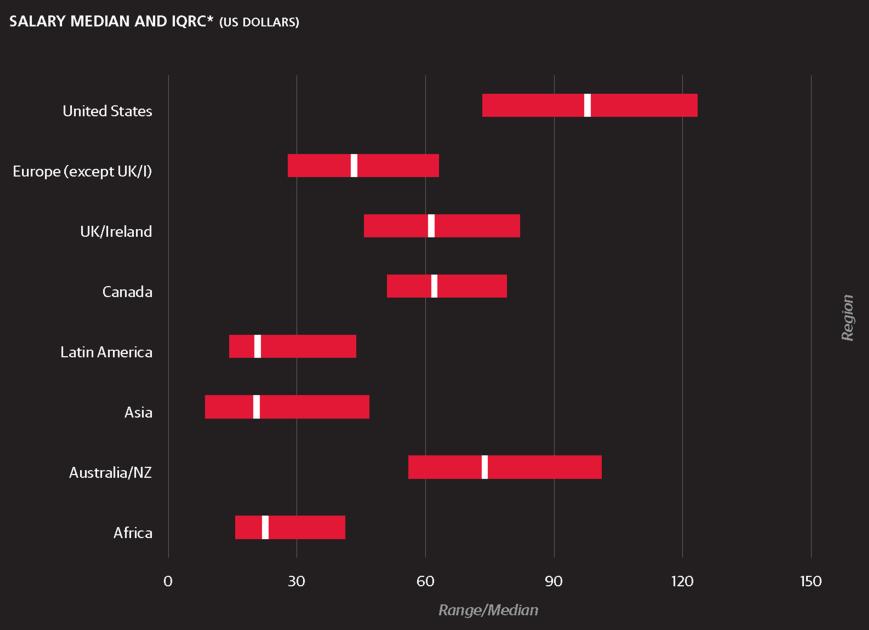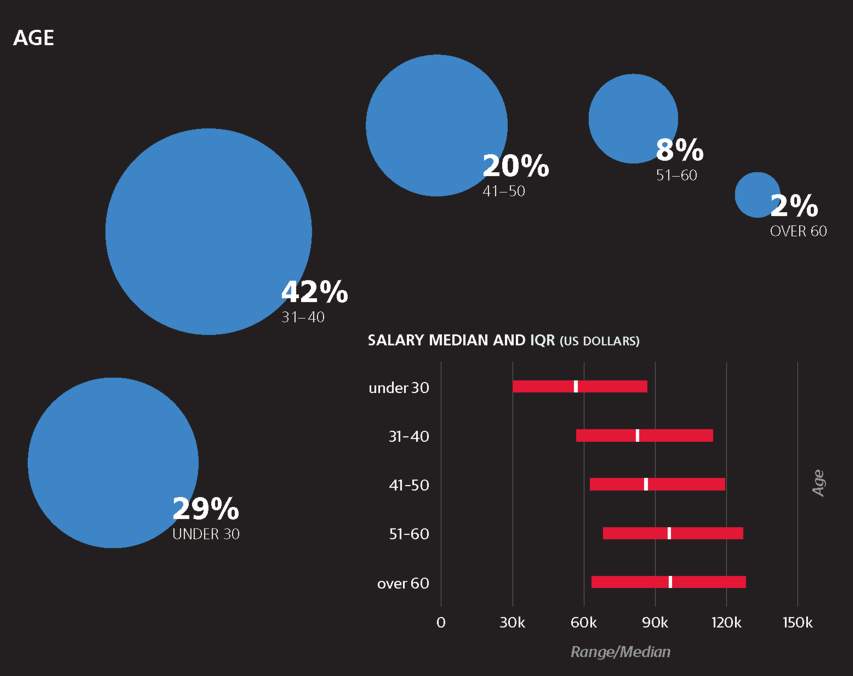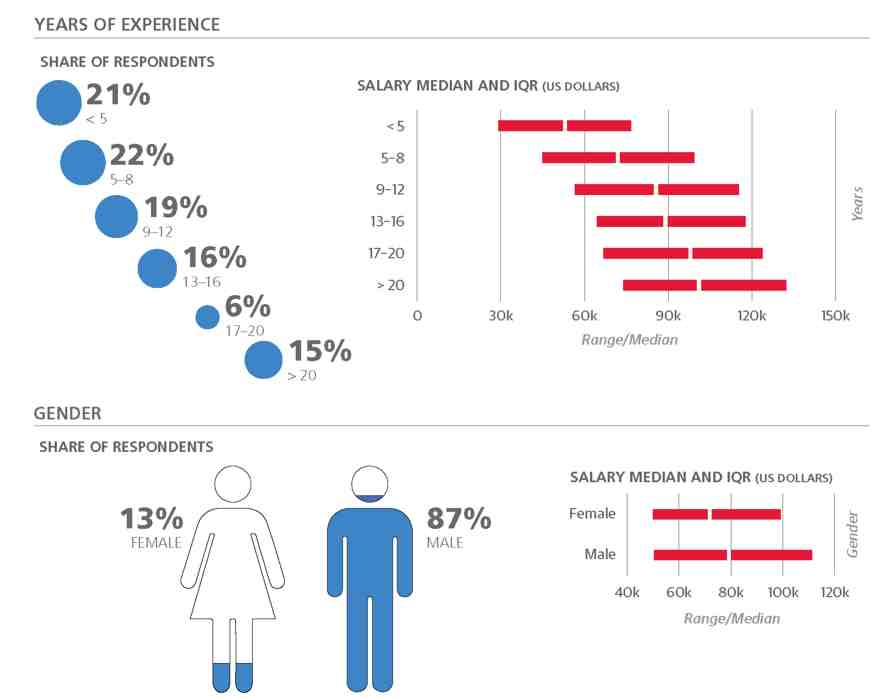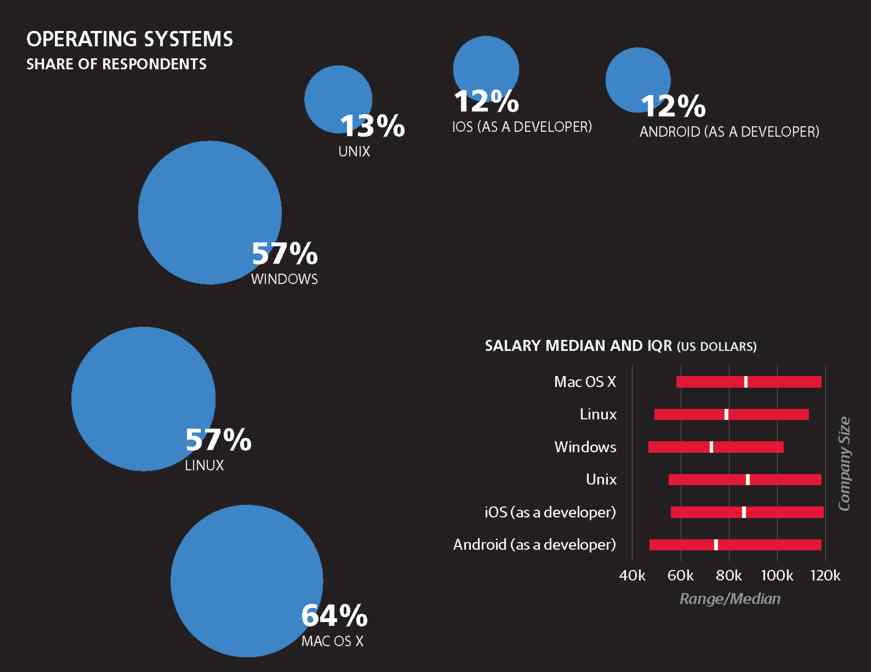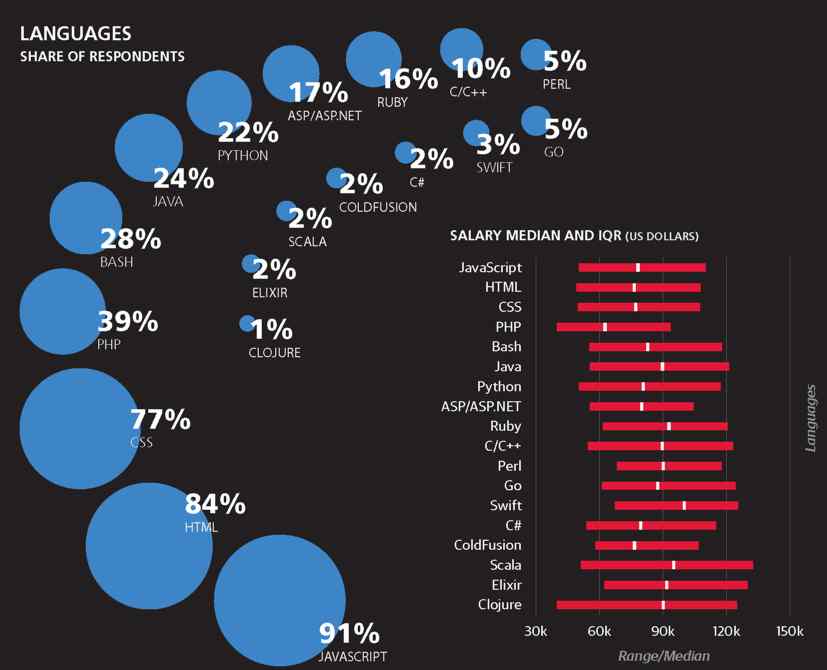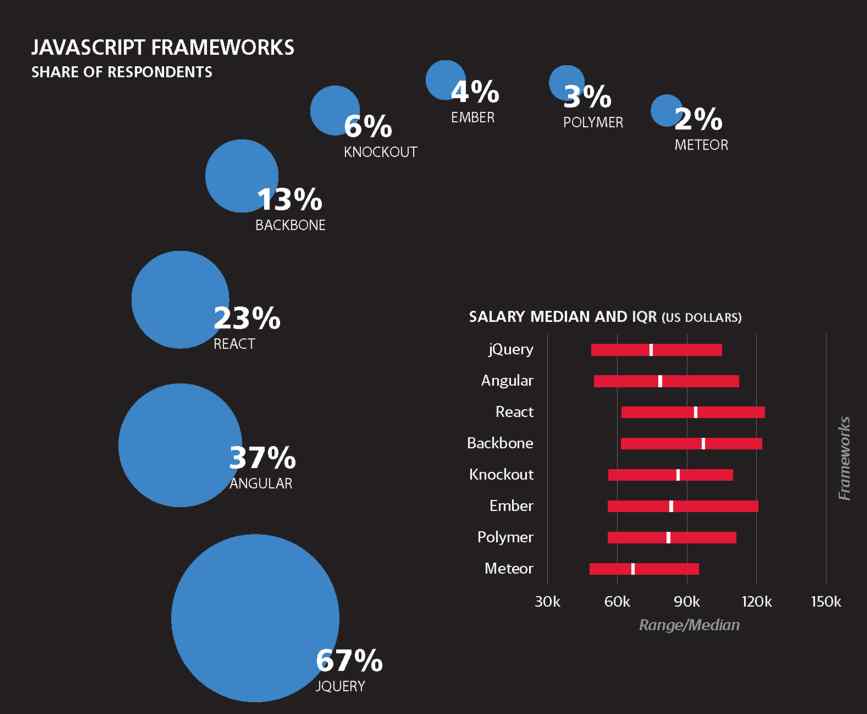| Web Developer Salaries Revealed |
| Written by Janet Swift | |||
| Thursday, 04 May 2017 | |||
|
O'Reilly has published the results of a survey of web developers. It's main focus was what web professionals earn, but along the way it reveals the operating systems, languages and JavaScript frameworks they use.
Over the past few years O'Reilly Media has conducted worldwide salary surveys of people working in the computer field. Its latest report, the 2016–2017 Web Salary Survey is based on data from more than 2,000 developers collected in March and April 2016. In a preamble, report authors John King and Andy Oram, note that: The respondents are self-chosen, not a random sample. They are likely to be people who use O’Reilly Media products and resources, and might not reflect the field as a whole.
The main finding of the survey is that the median salary among all professional web developers is $78,000 US dollars, the currency used throughout the report. Qualifying this the report states: There is a lot of variation, but 75% of respondents had a salary of at least $50,000, and 25% had a salary of at least $109,000. Things are changing fast, though: salaries rise quickly. 17% of respondents reported a salary raise of 20% to 30% over the past three years ... although 5% reported a decrease in salary, 16% reported that their salaries had doubled, or even done better, over three years. The charts in the report provide the median salary and its interquartile range which means that 25% of respondents earned more and 25% less than the range indicated. Looked at geographically, the United States paid the highest salaries, with the average being $98,000. Canada was also pretty high, with a median of $79,000 and Australia/New Zealand at $74,000. While salaries in UK and Ireland have a median of $62,000 in the rest of Europe the median drops to $43,000. For other parts of the world:
In the rest of the charts information is provided in the blue circles about the number of respondents in each category. Although this chart makes it look as though salary increased with age, in fact the real relationship was with years of experience. The report states: When experience is held constant, respondents in the 26 to 30 and 31 to 35 groups earned the most, with an advantage of $3,932 and $3,347, respectively, over other age groups. Respondents aged 61 to 65 earned $4,526 less than younger respondents with similar experience. The report concludes that a year's experience is worth about $1,350 and being male also has a positive advantage. Education makes a big difference in salary—something that may be surprising, given that the web contains a lot of people who are self-taught or who got brief educational experiences at for-profit programs. If you have a doctorate, you can expect to earn on average $10,434 more than someone without one. Strangely enough, possessing a master’s degree is slightly bad for salary: respondents with master’s degrees earned $542 less, all else being equal. With regard to operating system, languages and frameworks respondents could choose multiple options for the shares add up to more than 100%. MacOS is the most popular operating system, used by 64% of respondents and Linux and Windows tie on 57%, which seems a surprisingly small share for Windows. The fact that more respondents claim to use Unix than iOS or Android probably indicates a bias in the sample towards academics.
Unsurprisingly, given that JavaScript is the language that powers the web, it was the most prevalent - in fact 91% might seem a low share and similarly 84% for HTML might make you wonder how 16% can avoid it. PHP developers are least well paid and Python programmers best paid among popular languages. Over all languages Swift and Scala were the best paid - but the number of developers using them was very small.
As in the Vision Mobile Survey we recently reported on, jQuery emerged as by far the most popular JavaScript framework, even though it was among the least well remunerated. Backbone and React were the best paid.
There's a lot more in the O'Reilly Web Salary Survey,
More InformationRelated ArticlesProgress Survey of .NET Web Developers New Developer Economics Survey jQuery Still Our Favourite Framework jQuery 3.2.1 Is Out - Do We Still Care?
To be informed about new articles on I Programmer, sign up for our weekly newsletter, subscribe to the RSS feed and follow us on Twitter, Facebook or Linkedin.
Comments
or email your comment to: comments@i-programmer.info |
|||
| Last Updated ( Thursday, 04 May 2017 ) |


